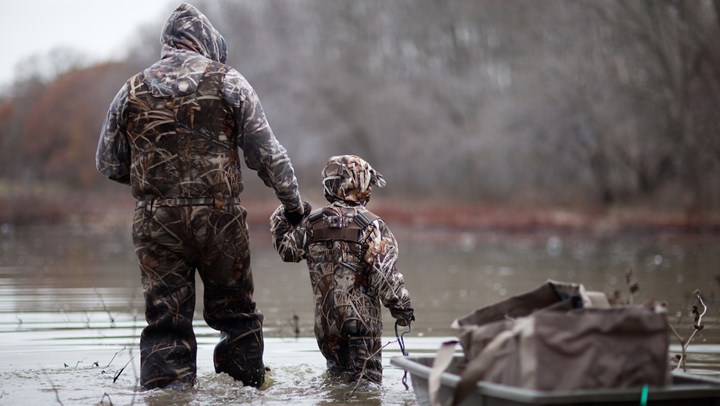
by Tim Flanigan - Wednesday, August 2, 2017

We hunters live in the proverbial glass house where any missteps such as wildlife law infractions or perceived disrespect for wildlife or public safety is readily seized upon by anti-hunters for negative propaganda. Fortunately, according to the most recent data available, hunting enjoys a public approval rating of 79 percent. Public approval of hunting is precious and must be studiously guarded by strict adherence to two vitally important key words—respect and responsibility.
Hunter behavior must always be completely ethical and lawful, conducted in fair-chase hunting methods and within the disciplines of safe firearm use. Willful violations subject the violator to prosecution under the law—which is proper—but while they are not the norm, game and wildlife law violations go far to stain the overall image of the hunting community.
Hunting with firearms is a serious business that requires safe gun handling practices—so much so that hunter education training and certification is mandatory throughout America. Every hunter education student hears these vitally important words—respect and responsibility—repeated frequently during the instruction that qualifies the student to obtain a hunting license.
"It is our personal responsibility to honor that heritage and great privilege by conducting ourselves with respect for every aspect of our sport."As responsible hunters, we respect the hunting and non-hunting community by being circumspect in all of our actions, knowing our behavior is closely scrutinized due to the fact that we use firearms. While there are laws in place prohibiting the wanton waste of wildlife and programs such as the NRA’s Youth Hunter Education Challenge and the NRA-backed Hunters for the Hungry movement that encourage a healthy respect for our quarry, we should strive for an even higher personal standard of ethics when afield.
Aldo Leopold described wildlife conservation as “the wise use without waste.” We must bring our quarry to bag as efficiently and humanely as possible. Therefore, the prudent hunter is very selective of his or her shooting opportunities and is sufficiently skilled to ensure game-stopping shots. Accurate shooting is an integral part of our respect for wildlife, and taking game quickly and humanely is our responsibility.
As the NRA cites in its gun safety rules, knowing your target and what lies beyond is mandatory. For example, a careless shot while hunting can result in a bullet unintentionally penetrating a distant home or vehicle. Each such incident is certain to make local news and foster an apprehension of hunters. We hunters must respect the capabilities of our firearms and be ready to accept responsibility for our actions with those firearms.
Keep in mind that we Americans enjoy a rich and proud heritage of hunting that is precious and the envy of the world. It is our personal responsibility to honor that heritage and great privilege by conducting ourselves with respect for every aspect of our sport.
The efficient and ethical hunter enjoys a wealth of personal satisfaction in skillful shooting and woodsmanship abilities that culminate into cherished memories—the true bag limit of hunting. Few friendships are as deep as those shared by hunting partners. Our zeal for hunting demands personal respect for all aspects of the sport and acceptance of our responsibility to maintain the positive image of the hunters. As hands-on wildlife managers, there is great satisfaction and pride to be found in hunting like a pro and playing by the rules.
■ ■ ■
About the Author
With over 30 years of experience in photography, wildlife and conservation and the hunting and shooting sports, Flanigan is a full-time freelance contributing writer and photographer who is published in numerous outdoor publications including Field and Stream, North American Whitetail and Game and Fish Publications. He has won multiple awards for his contribution to informing the general public of hunters’ vital role in wildlife conservation, including the Pennsylvania Writers Association’s (POWA) First Place Excellence in Craft award in the “Wildlife Conservation Partnership” category for his NRAHLF.org article, “The Role of the Hunter and the Gun in Wildlife Conservation,” and the First Place Talbot Denmead Memorial Award for Best on Conservation and/or the Environment for his NRAHLF.org article “Who Really Cares About Conservation?” To learn more about Tim Flanigan, visit his website at www.natureexposure.com.
E-mail your comments/questions about this site to:
[email protected]
Proudly supported by The NRA Foundation and Friends of NRA fundraising.
